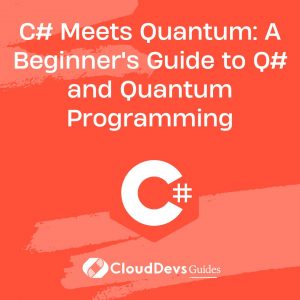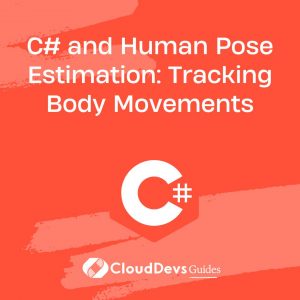C# Meets Quantum: A Beginner’s Guide to Q# and Quantum Programming
Table of Contents
Quantum computing represents a revolutionary approach to computation, harnessing the peculiarities of quantum mechanics to process information in ways that classical computers cannot. With the advent of Q#, a programming language developed by Microsoft for quantum computing, the integration of quantum algorithms into mainstream programming languages like C# is becoming increasingly feasible. This blog post delves into the synergy between C# and Q#, offering insights into how they intertwine and the future they hold together in the realm of quantum computing. You can hire C# developers for your projects to ensure greater success.

Table of Contents
1. Quantum Computing Basics
Before diving into Q#, it’s important to understand the basics of quantum computing. Unlike classical computing, which relies on bits (0s and 1s), quantum computing uses quantum bits or qubits. These qubits can exist in a state of 0, 1, or any quantum superposition of these states, enabling complex computations to be performed more efficiently. Quantum phenomena like entanglement and superposition are at the core of this computational power.
2. Introduction to Q#
Q# is a domain-specific language developed by Microsoft, designed specifically for expressing quantum algorithms. It is integrated with Microsoft’s Quantum Development Kit (QDK), which provides tools for writing, simulating, and running quantum algorithms. Q# is particularly unique because it’s designed to operate seamlessly with classical languages like C#.
Read more about Q# on Microsoft’s official Q# documentation.
3. Integration of C# and Q#
The integration of C# with Q# is a significant milestone in quantum programming. Developers can use C# to call quantum algorithms defined in Q#, combining the power of classical programming with quantum computing. This integration allows for complex algorithms that require both classical and quantum computations to be written more naturally.
A simple example of this integration is a quantum random number generator. In Q#, you can define a quantum operation to generate a random bit:
```qsharp
operation QuantumRandomNumber() : Result {
using (qubit = Qubit()) {
H(qubit);
let result = M(qubit);
Reset(qubit);
return result;
}
}
```
In C#, you can call this operation:
```csharp
using Microsoft.Quantum.Simulation.Core;
using Microsoft.Quantum.Simulation.Simulators;
class Program {
static async Task Main(string[] args) {
using var simulator = new QuantumSimulator();
var result = await QuantumRandomNumber.Run(simulator);
Console.WriteLine($"Random bit: {result}");
}
}
```
4. Quantum Algorithms and Q#
One of the most famous quantum algorithms is Shor’s algorithm, designed for factoring large numbers, a task that is extremely time-consuming for classical computers. While the full implementation of Shor’s algorithm is complex, it demonstrates the potential of quantum computing in solving specific problems exponentially faster than classical computers.
To explore more about quantum algorithms, visit Quantum Algorithm Zoo, a comprehensive catalog of quantum algorithms.
5. Challenges and Future Perspectives
Quantum computing, particularly its integration with languages like C# through Q#, is still in its nascent stages. One of the challenges is the current hardware limitations, as reliable and scalable quantum computers are still under development. Moreover, the quantum programming paradigm is fundamentally different from classical programming, requiring a shift in mindset and approach.
The future, however, is promising. As quantum hardware evolves and becomes more accessible, the synergy between C# and Q# will likely play a pivotal role in making quantum computing more mainstream. This integration will not only benefit scientific research but also offer novel solutions in various fields such as cryptography, optimization, and materials science.
Conclusion
The marriage of C# and Q# in quantum computing is a fascinating development, bridging the gap between classical and quantum programming. While there are challenges to overcome, the potential for transformative computational capabilities is immense. As we move forward, the continued evolution of Q# alongside classical languages like C# will be critical in harnessing the full power of quantum computing.
For more insights into quantum computing and Q#, Microsoft’s Quantum Blog is a valuable resource, offering updates and in-depth articles on the subject.
Additional Resources:
You can check out our other blog posts to learn more about C#. We bring you a complete guide titled An Introductory Guide to the Fundamentals of C# Programming along with the Leveraging the Power of Entity Framework for Efficient Database Operations in C# and Advanced C# Programming Techniques which will help you understand and gain more insight into the C# programming language.



